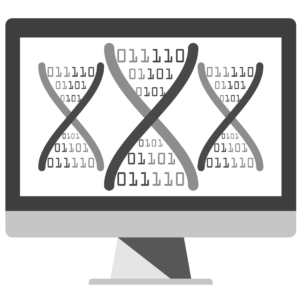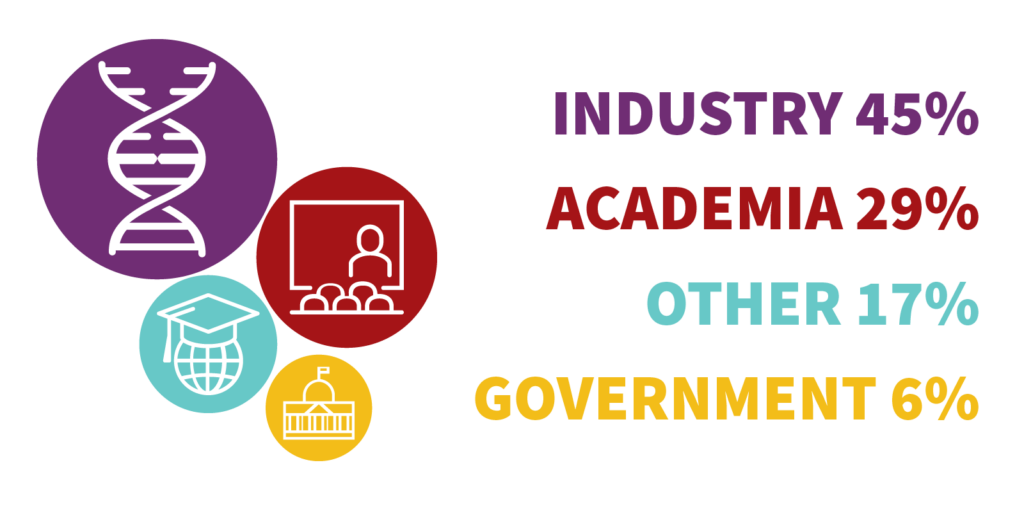
The goal of the Computational & Systems Biology (CSB) program is to train the next generation of scientists in technology-intensive, quantitative, systems-level approaches to molecular biology. We look for graduate students who are as comfortable operating the latest high end instrumentation as they are manipulating the mathematical formalisms that are required to make sense of their data. It is our hope that the students who join the CSB will apply these approaches to unraveling the complex genetic circuits that control the cell and statistical approaches to understanding the genetics of human disease.
Technological advances are having a major impact on molecular biology. Advances in experimental techniques mean that large amounts of sequence, expression, and localization data are now routinely gathered by individual investigators. In addition terabytes of these kinds of data are stored in various public and private databases. Concurrently, access to large scale computing resources has become more and more common in molecular biology laboratories. Students in the Computational & Systems Biology program will learn to leverage these advances in both experimental and computational resources.
CSB faculty work on a variety of different biological problems, but in most cases students will find a tight coupling between computational and experimental approaches.
Some of the general areas in which faculty work include:
- Large-scale genetic network analysis and reconstruction
- Technology development for high-throughput collection of genetic and biochemical data
- Molecular modeling of genetic regulatory circuits
- Real time, single cell analyses of genetic regulatory circuits
- Specificity and evolution of DNA-protein interactions
- Algorithm development for comparison of DNA, RNA, and protein sequences
- Synthetic Biology Complex trait analysis
- Population genetic analysis of genetic variation
- Functional genomic approaches to disease gene identification
Students in the Computational & Systems Biology (CSB) program will typically take five (5) to six (6) courses during their first year. Students will also participate in three laboratory rotations over the fall and spring semesters of Year 1 prior to selecting a thesis lab. Students are expected to complete the following coursework during their entire graduate education:
DBBS required courses
Graduate Research Fundamentals
Ethics and Research Science – typically taken in Year 2
Program required courses
Computational Molecular Biology
Genomics
Fundamentals of Computer Science – only for students who need additional training in computer science or do not have an undergraduate computer science degree
Three (3) advanced electives
Common options include:
Population Genetics
Molecular Evolution
Macromolecular Interactions
Mathematical Methods for Biophysics and Biochemistry
Algorithms for Computational Biology
Nucleic Acids and Protein Biosynthesis
Advanced Genetics
Statistical Thermodynamics
Statistical Computation
Probability
Mathematical Statistics
Stochastic Processes
Statistical Mechanics
Intro to Formal Languages and Automata Theory
Information Systems and Database Design
Numerical Methods
Computational Biology Journal Club
Participation is strongly encouraged but not required.
Qualifying exam
In the spring/summer semesters of Year 2, students must pass a Qualifying Exam (QE). Following a successful QE defense, students will identify and finalize their committee and complete their thesis proposal by December 31 of Year 3.
Thesis committee, proposal, and defense
In the summer and/or fall semesters of Year 2 after rotations are completed, students will select a thesis advisor and begin working in their thesis labs. Students will then select a thesis committee and complete their thesis proposal. Students will complete their thesis research, defense, and graduation over the rest of their graduate career. Most students graduate within five (5) to six (6) years of beginning their program.

CSB graduates pursue a variety of careers. Most program graduates go into industry, but many find paths in academia, government, and other fields like science communication and business and entrepreneurship.
Faculty Co-Directors:
Graduate Program Administrator: